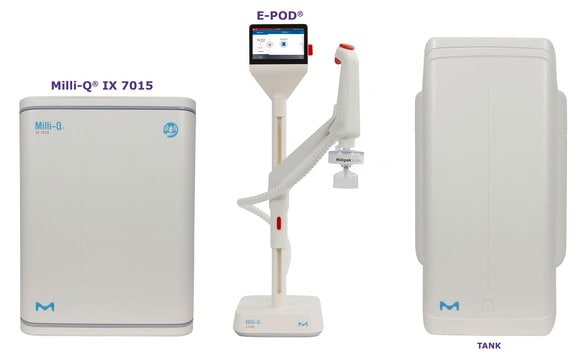05080576001
Roche
High Pure miRNA Isolation Kit
kit of for 50 isolations
About This Item
Recommended Products
General description
The High Pure miRNA Isolation Kit purifies and enriches small RNAs, such as microRNA (miRNA) from animal cells and tissue samples (including formalin-fixed, paraffin-embedded sections) or plant material. It can also be used to purify total RNA or to prepare samples enriched for small RNAs (<100 nucleotides).
Capacity: The High Pure Spin Filter Tubes hold up to 700 μL sample volume.
Application
- Northern blotting
- cDNA synthesis
- Primer extension
- miRNA array hybridization
- Relative quantification of miRNA with RT-PCR using, for example, the LightCycler® 480 System
Features and Benefits
- Isolate DNA-free miRNA ideal for qualitative and quantitative reverse transcription. ideal for qualitative and quantitative reverse transcription.
- Obtain excellent performance and linearity in RT-PCR.
- Generate stable , highly pure miRNAs using a simple, efficient protocol.
- Purify miRNA without using hazardous organic solvents. Avoid phenol/chloroform steps required by other suppliers′ miRNA purification kits.
- Choose one flexible kit for all your miRNA purifications. Use the same kit to purify small RNAs from a variety of sample types.
Components
- Tissue Lysis Buffer (for FFPE sections)
- Proteinase K, recombinant (for FFPE sections)
- Binding Buffer
- Binding Enhancer
- Wash Buffer
- Elution Buffer
- High Pure Filter Tubes
- Collection Tubes
Quality
Other Notes
Legal Information
Signal Word
Danger
Hazard Statements
Hazard Classifications
Acute Tox. 4 Dermal - Acute Tox. 4 Inhalation - Acute Tox. 4 Oral - Aquatic Chronic 3 - Eye Dam. 1 - Repr. 1B - Resp. Sens. 1 - Skin Corr. 1C - Skin Sens. 1 - STOT SE 3
Target Organs
Respiratory system
Supplementary Hazards
Storage Class Code
6.1D - Non-combustible, acute toxic Cat.3 / toxic hazardous materials or hazardous materials causing chronic effects
WGK
WGK 2
Flash Point(F)
285.8 °F
Flash Point(C)
141 °C
Certificates of Analysis (COA)
Search for Certificates of Analysis (COA) by entering the products Lot/Batch Number. Lot and Batch Numbers can be found on a product’s label following the words ‘Lot’ or ‘Batch’.
Already Own This Product?
Find documentation for the products that you have recently purchased in the Document Library.
Our team of scientists has experience in all areas of research including Life Science, Material Science, Chemical Synthesis, Chromatography, Analytical and many others.
Contact Technical Service










